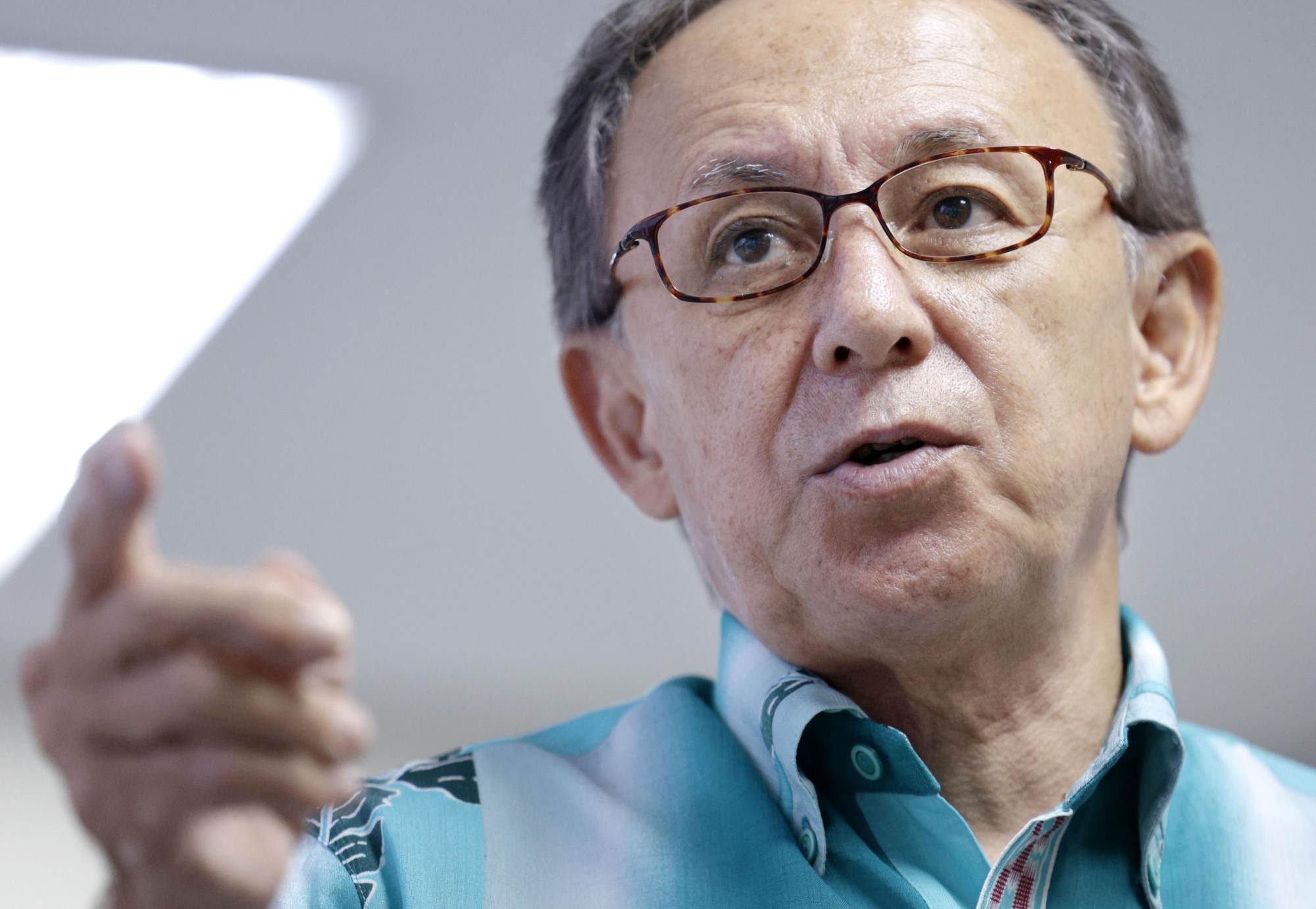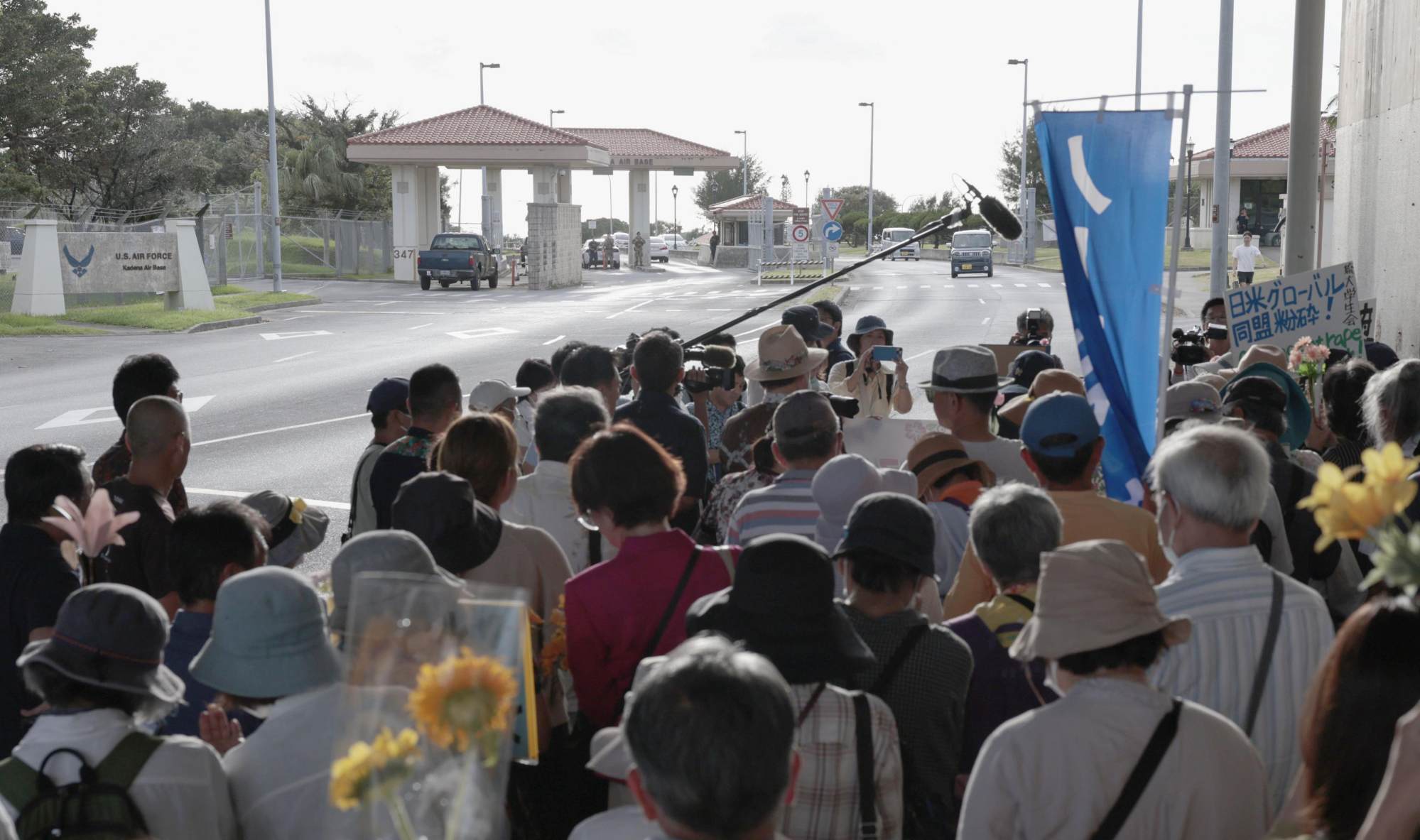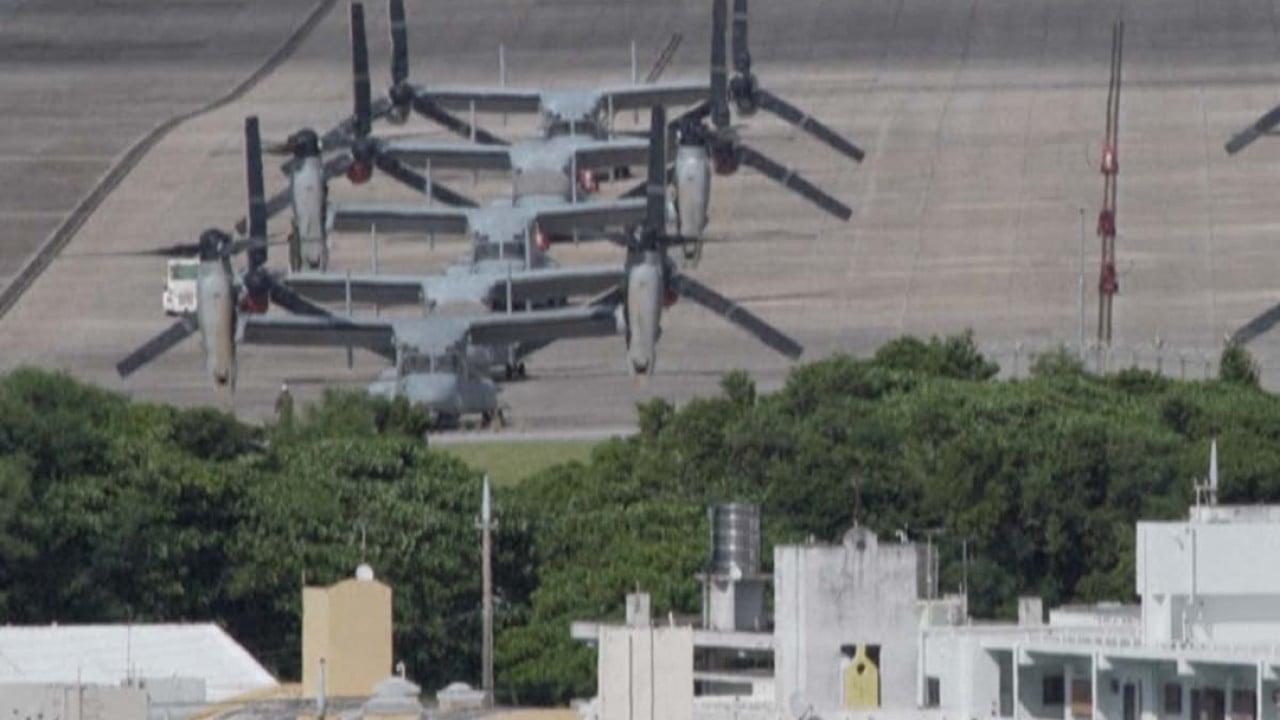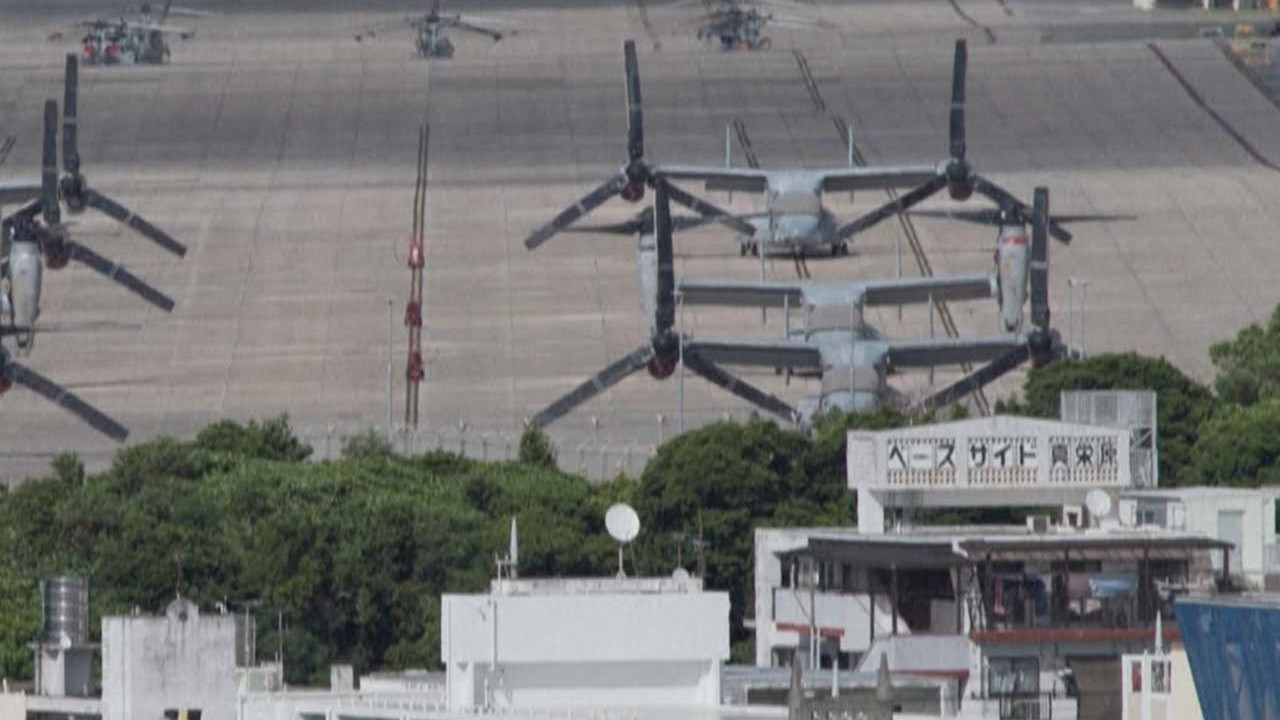Protests have erupted across Okinawa following revelations that the Japanese government withheld information about US troops’ sexual assaults on local women, with residents expressing outrage and demanding greater accountability from Tokyo.
There have been a series of demonstrations across the prefecture, home to around 30,000 US military personnel, and local residents have told This Week in Asia that they feel anger is reaching levels similar to those last seen in September 1995, when three US servicemen abducted and repeatedly raped an Okinawan girl aged 12.
That outrage saw hundreds of thousands taking part in protests but, two decades later, critics say they are fighting the same battles. This time, however, much of their fury is aimed at Tokyo.
“The situation is absolutely miserable,” said Shinako Oyakawa, a rights activist who is also involved in local politics in Japan’s southernmost prefecture.
“No one is standing up for us,” she said. “The Japanese government continues to expose the people of Okinawa to this sort of risk and the victims get no help.
“They have told us for decades that the US military is here to protect us, but the opposite is true. People are furious and I hope this can be the turning point for the bases in Okinawa.”

The most recent eruption of anger can be traced back to June 25, when media in Okinawa reported that a US Air Force serviceman had sexually assaulted a teenage girl in December 2023. The suspect was not indicted until late March. On June 28, it was discovered that a US Marine had allegedly injured a woman while attempting to rape her in May. The marine was not indicted until June 17.
Even though both suspects were detained by local police, the Okinawan government was not informed and the national authorities did not pass the information on.
On the same day as the second indictment, Okinawa Governor Denny Tamaki told local reporters that the cases were “inhuman and despicable crimes”, national broadcaster NHK reported. He added that he felt “extreme anger”.
“The crimes cause the people of Okinawa strong concerns but also ignore women’s human rights and dignity, and are absolutely unacceptable,” he said. “It is more than regrettable that, in a sense, the situation is left unaddressed.”
Denjitsu Ishimine, mayor of the village of Yomitan, which is the site of a number of US military facilities, held talks with the local representative of the foreign minister in Okinawa and demanded the introduction of a system to inform local governments of incidents involving US troops.
In Tokyo, Yoshimasa Hayashi, the government’s top spokesman, told reporters that the incidents had not been reported to local authorities in order to “protect the victims’ privacy” – an excuse that has attracted widespread derision.
The government’s case was further undermined when Hayashi confirmed that it had withheld information on three more cases of sexual assault against Okinawan women – in February and August 2023 and again in January 2024 – from the prefectural authorities. Hayashi declined to provide further details on the incidents because none of the US servicemen was indicted.

“It takes months for us to find out what has happened and, in that time, there have been more incidents,” Oyakawa said. “If the authorities had known, then maybe something could have been done to avoid those other attacks. People feel helpless, they feel unsafe.”
Okinawan linguist and activist Byron Fija directs his anger at the local government, as well as the US military and the authorities in Tokyo.
Fija, who never knew his American father and was adopted by his mother’s older brother, has taken part in protests.
“Our politicians here all say it is terrible each time this happens and that they are angry and are going to lodge protests with the US and Tokyo, but nothing ever happens,” he said. “And nothing changes. Okinawan women are assaulted and we get the same comments from the same politicians. Our political leaders are cowards.”
Fija said Okinawan people had been “brainwashed” by the government and the media to believe that the bases were critical for Japan’s safety because of the threat posed to the region by China.
“They tell us that, but it’s all just propaganda,” he said.
Michael Cucek, an assistant professor of Asian studies at the Tokyo campus of Temple University, says Tokyo’s failure to liaise with the local government “shows real contempt for the government of Okinawa and a completely contemptuous attitude towards the people of that part of Japan”.
“It is such short-term thinking, to not be clear as to the criminal acts that are taking place, when the nation’s security depends so heavily on Okinawans accepting the US bases,” he said.
Nevertheless, Cucek points out that the ruling Liberal Democratic Party fared well in recent local elections, quite likely because of growing concerns among local people about the threat of instability caused by China, and that Okinawa remains the critical US linchpin in regional security.
“Okinawa is intrinsic to the security of the Indo-Pacific and is necessary for a continuing presence and the functioning of the US-Japan security treaty,” he said.
Cucek said he believed the US military would impose some sort of ban on personnel going off bases and make “expressions of contrition”, based on how past incidents were handled.
However, he said Tokyo should be leading the apologies instead.
“The contrition should be coming from Tokyo,” he said. “It is Tokyo’s job to advocate on behalf of its citizens, and it turns out that Tokyo was deeply involved in suppressing this information.”



